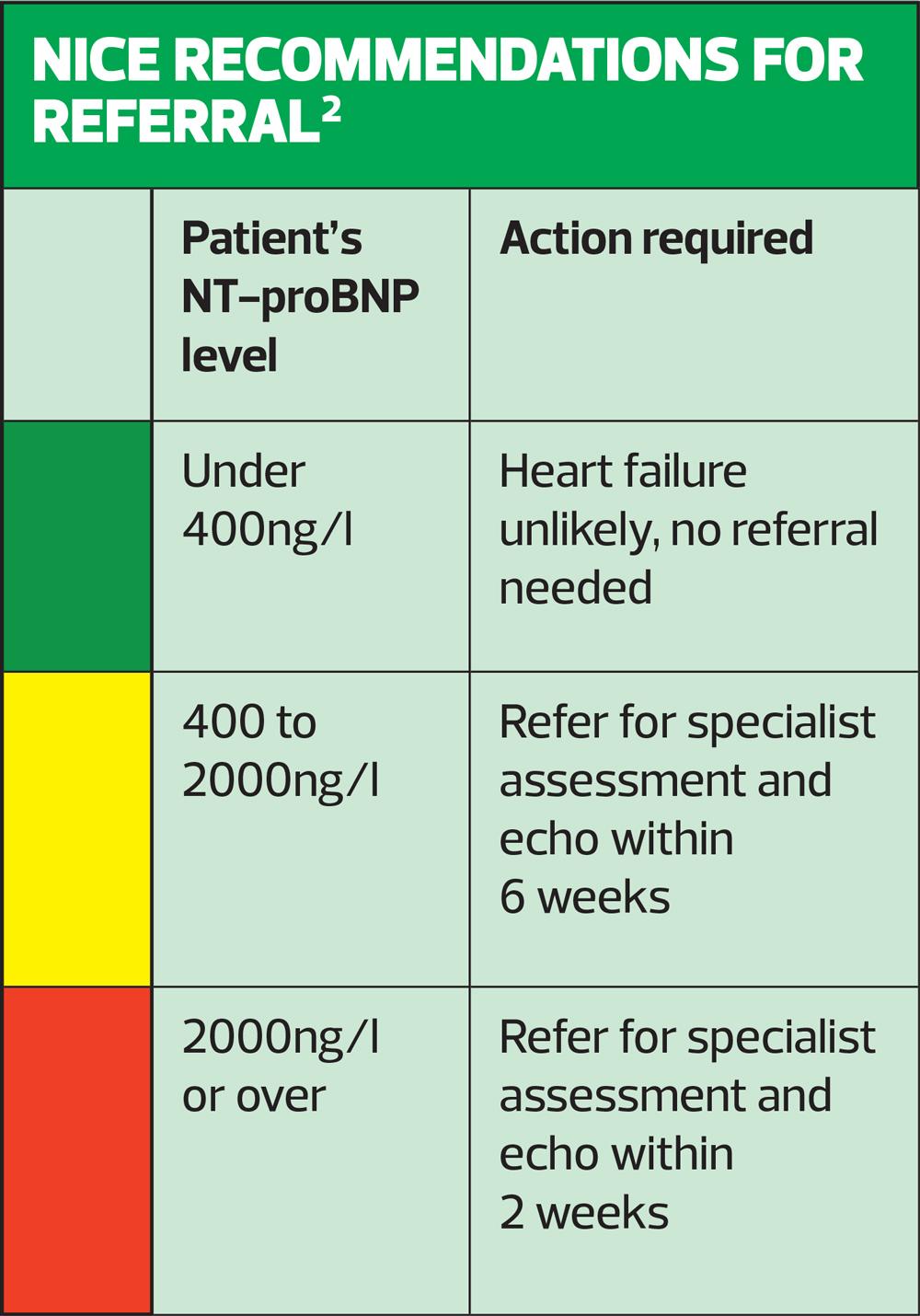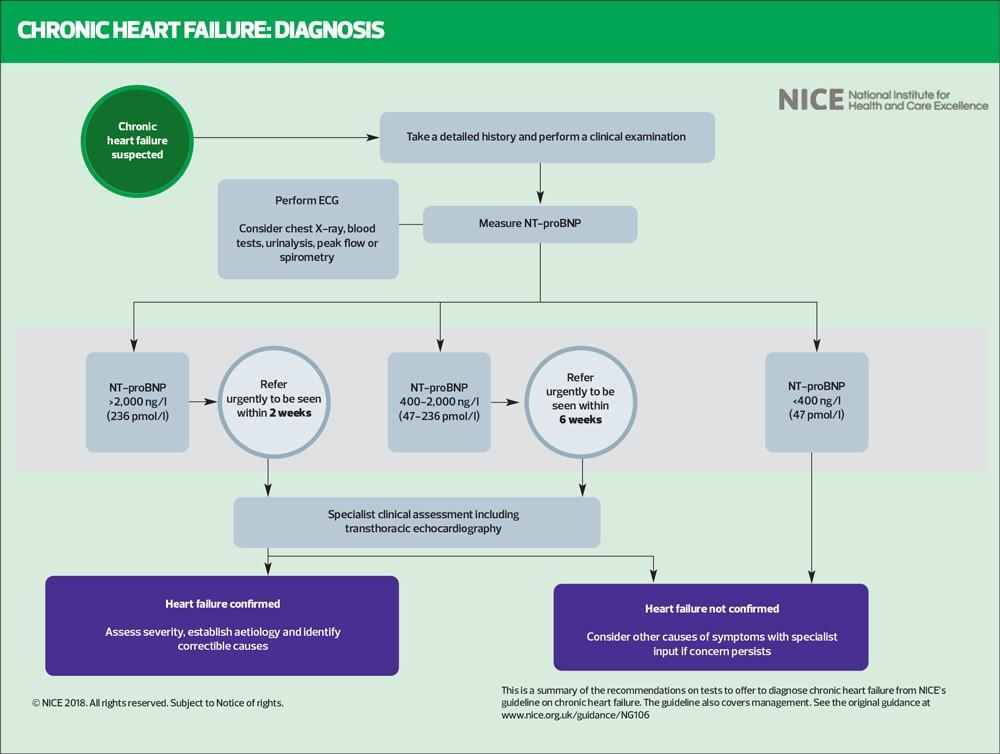
Practice Nurse Quick Guide – Diagnosing heart failure
This Quick Guide has been initiated and supported by Roche Diagnostics Limited, who have had the opp...
This Quick Guide has been initiated and supported by Roche Diagnostics Limited, who have had the opportunity to review it for factual accuracy but have had no input into its content, which was developed by Practice Nurse.
Practice Nurse 2023;53(5):
Heart failure is the leading cause of hospital admissions in the over 65s and has high prevalence among those attending for review for long term conditions such as diabetes, hypertension and chronic kidney disease. General practice nurses are therefore in an ideal position to identify the early signs and symptoms of heart failure in patients most at risk.
RISK FACTORS FOR HEART FAILURE
- Hypertension
- Diabetes
- Smoking
- Previous myocardial infarction
Suspicion of heart failure should be high in these patients.
WHEN TO SUSPECT HEART FAILURE
Symptom | What to ask |
Breathlessness | Have you noticed yourself getting more out of breath recently? |
Fatigue and/or reduced tolerance for exercise | Have you noticed yourself getting more exhausted with less effort? |
Swelling (particularly in the feet and/or ankles) | Are your shoes and socks feeling tighter or leaving marks? |
Palpitations | Have you noticed a rapid, fluttering or pounding heartbeat? |
Weight gain (indication of fluid retention) | Have you put on any weight recently? |
Persistent cough | Have you been coughing much? |
WHAT SHOULD YOU DO NEXT?
If you suspect heart failure, request an NT-proBNP test – a simple blood test to measure a type of natriuretic peptide that is elevated in heart failure. NT-proBNP testing in primary care can rule out heart failure or indicate the need for further assessment.
- NICE has recommended natriuretic peptide testing to help diagnose heart failure since 2010,1 but less than 25% of newly diagnosed patients had a test before diagnosis2
- The latest update to the NICE quality standard states categorically that adults presenting in primary care with suspected heart failure should have their NT-proBNP measured3
- Patients with elevated levels of NT-proBNP have a higher likelihood of heart failure and a poorer prognosis, and timely referral can help ensure they are started on appropriate treatment1
- Earlier diagnosis can help to reduce avoidable mortality, prevent recurrent hospitalisation and improve quality of life in people with heart failure4
- An NT-proBNP level below 400ng/l can be used to rule out heart failure, reducing unnecessary referrals and investigations1
REFERENCES
1. NICE NG106. Chronic heart failure in adults: diagnosis and management; 2018. https://www.nice.org.uk/guidance/ng106
2. Roalfe AK, et al. Eur Heart J 2021;43(9):881-891
3. NICE QS9. Chronic heart failure in adults: quality standard; 2011, updated January 2023. https://www.nice.org.uk/guidance/qs9/chapter/Quality-statements
4. McDonagh TA, et al. Eur Heart J 2021;42:3599-3726
Related articles
View all Articles

